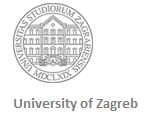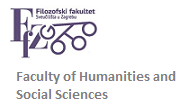Home » 9. semestar – NASTAVNIČKI SMJER – jednopredmetni
Category Archives: 9. semestar – NASTAVNIČKI SMJER – jednopredmetni
Application of cognitive linguistics in learning and teaching L2
Course title: Application of cognitive linguistics in learning and teaching L2 Instructor: Associate professor Renata Geld, PhD ; Associate professor Mateusz-Milan Stanojević, PhD ECTS credits: 5 Status: elective Semester: III Enrolment requirements: recommended for students with basic knowledge of cognitive linguistics Course description and objectives: The course offers fundamental aspects of the cognitive linguistic theoretical […]
Bilingualism
GRADUATE PROGRAMME – Master of Education in English Language and Literature SINGLE AND DOUBLE MAJOR PROGRAMMES semester 3 Course title: BILINGUALISM Course coordinator: Assistant Professor Stela Letica Krevelj Lecturer: Assistant Professor Stela Letica Krevelj ECTS credits: 5 Language of instruction: English Duration: semester III Status: elective Form of instruction: 2 hours of lectures + 2 […]
Multilingualism
Course title: MULTILINGUALISMCourse coordinator: Renata Geld, Ph.D.Lecturer: Stela Letica Krevelj, Ph.D.ECTS credits: 3Languageofinstruction: EnglishDuration: semester IXStatus: electiveForm of instruction: 2 hours of lecture and 2 hours of seminarPrerequisites: Process of language acquisition (or Second language acquisition) and TEFL or equivalent courses in other graduate programmes.Examination: written exam Contents: Individual and societal multilingualism, multiple language acquisition, […]
Learning English at an Early School Age
Course title: LEARNING ENGLISH AT AN EARLY SCHOOL AGEInstructors: Asst. Prof. Renata Geld, Mihajla Ćavar PortolanECTS credits: 5Semester: IXStatus: electiveEnrollment requirements: noneCourse description: Rationale for early learning of a foreign language; overview of research in the field; child abilities and limitations with respect to acquiring a foreign language at that stage (age 6-10) of linguistic, […]
Application of cognitive linguistics in learning and teaching L2 (arch.)
Course title: Application of cognitive linguistics in learning and teaching L2 Instructors: Renata Geld, PhD ECTS credits: 5 Status: elective Semester: III Enrollment requirements: recommended for students with basic knowledge of cognitive linguistics Course description and objectives: The course offers fundamental aspects of the cognitive linguistic theoretical framework that are relevant for current trends in […]
Learning English at an Early School Age-archive
Course title: LEARNING ENGLISH AT AN EARLY SCHOOL AGEInstructor: Professor Jelena Mihaljević Djigunović, PhD.ECTS credits: 5Semester: IXStatus: electiveEnrollment requirements: noneCourse description: Rationale for early learning of a foreign language; overview of research in the field; child abilities and limitations with respect to acquiring a foreign language at that stage (age 6-10) of linguistic, cognitive, affective […]
Bilingualism and Multilingualism (archive)
Course title: BILINGUALISM AND MULTILINGUALISM Instructors: Professor Jelena Mihaljević Djigunović, Marta Medved Krajnović, PhD., Renata Geld, Stela Letica Krevelj ECTS credits: 5 Status: elective Semester: IX Enrollment requirements: none Course description: Definitions of bilingualism; overview of research in the field; relationship between individual and social bilingualism; dynamics of bilingual development (in natural and institutionalized contexts); […]
Practicum 3 (9th sem)
Course title: PRACTICUM 3Instructors: Asst. Prof. Renata GeldECTS credits: 3 creditsStatus: mandatorySemester: IXEnrollment requirements: noneCourse description: Practical aspects of teaching learners of different ages. Practical aspects of teaching very young learners. Practical aspects of teaching lower primary learners. Practical aspects of teaching upper primary learners. Practical aspects of teaching secondary school learners. Practical aspects of […]



